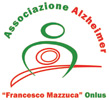 Risposta: Il ruolo è determinante. Famiglia e gruppo sociale influiscono fortemente sul comportamento delle persone: gli individui che vivono in un ambiente in cui le regole vengono facilmente violate senza rischiare sanzioni, si sentono giustificati a comportarsi disonestamente senza sentire minacciata l'immagine di se stessi come persone oneste.
Risposta: Il ruolo è determinante. Famiglia e gruppo sociale influiscono fortemente sul comportamento delle persone: gli individui che vivono in un ambiente in cui le regole vengono facilmente violate senza rischiare sanzioni, si sentono giustificati a comportarsi disonestamente senza sentire minacciata l'immagine di se stessi come persone oneste.
Lo dimostra una recente importante ricerca pubblicata su Nature della quale riportiamo l’Abstract (Sull’argomento si consulti anche la Domanda n. 12. "La disonestà è un atteggiamento e/o comportamento innato o acquisito?")
Gächter S., Schulz J.: Intrinsic honesty and the prevalence of rule violations across societies. Nature 531,496–499(24 March 2016)doi:10.1038/nature17160
Abstract:
Deception is common in nature and humans are no exception. Modern societies have created institutions to control cheating, but many situations remain where only intrinsic honesty keeps people from cheating and violating rules. Psychological, sociological and economic theories suggest causal pathways to explain how the prevalence of rule violations in people’s social environment, such as corruption, tax evasion or political fraud, can compromise individual intrinsic honesty. Here we present cross-societal experiments from 23 countries around the world that demonstrate a robust link between the prevalence of rule violations and intrinsic honesty.
We developed an index of the ‘prevalence of rule violations’ (PRV) based on country-level data from the year 2003 of corruption, tax evasion and fraudulent politics. We measured intrinsic honesty in an anonymous die-rolling experiment. We conducted the experiments with 2,568 young participants (students) who, due to their young age in 2003, could not have influenced PRV in 2003. We find individual intrinsic honesty is stronger in the subject pools of low PRV countries than those of high PRV countries. The details of lying patterns support psychological theories of honesty. The results are consistent with theories of the cultural co-evolution of institutions and values, and show that weak institutions and cultural legacies that generate rule violations not only have direct adverse economic consequences, but might also impair individual intrinsic honesty that is crucial for the smooth functioning of society.
www.nature.com/nature/journal/v531/n7595/abs/nature17160.html




